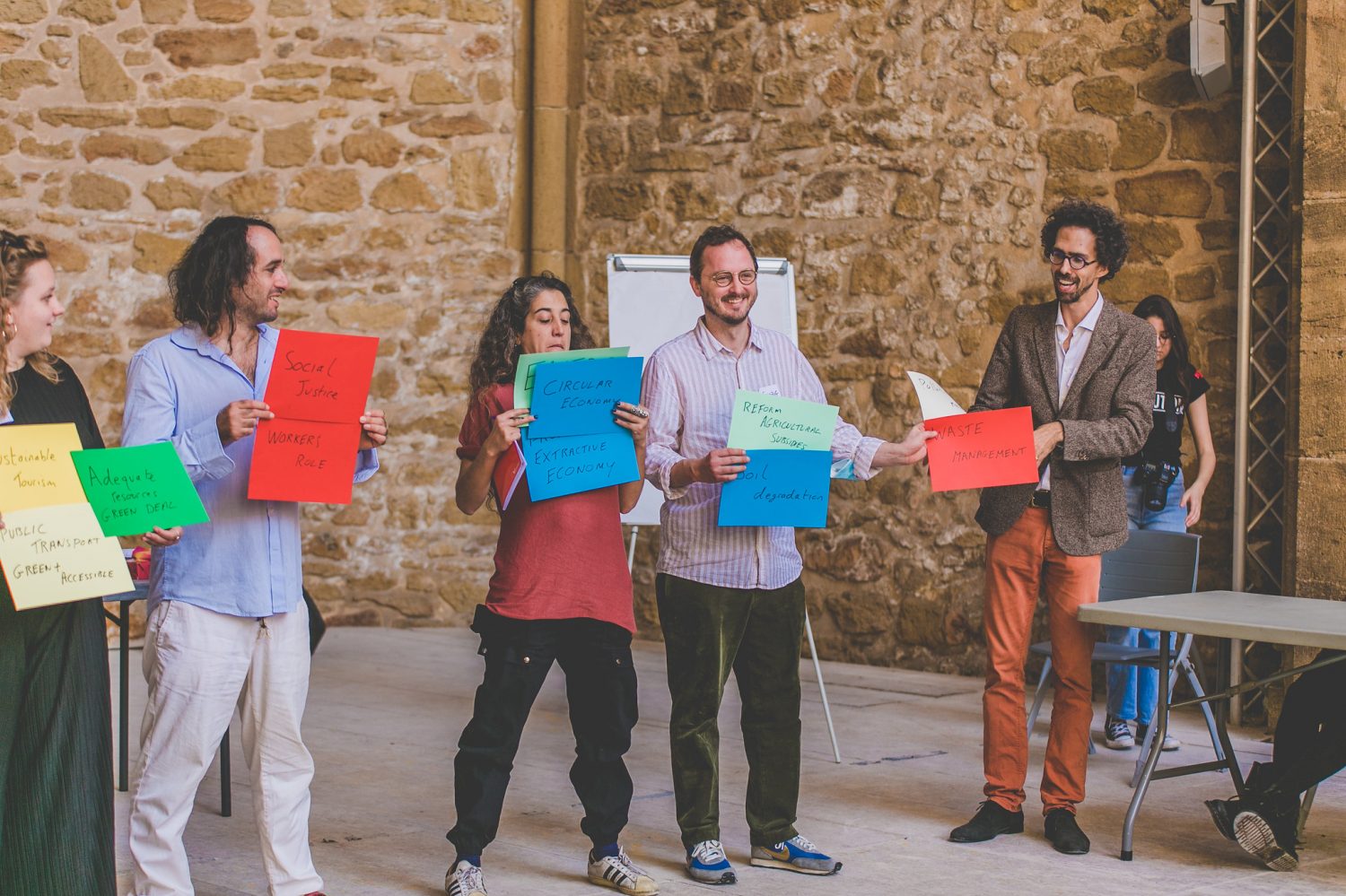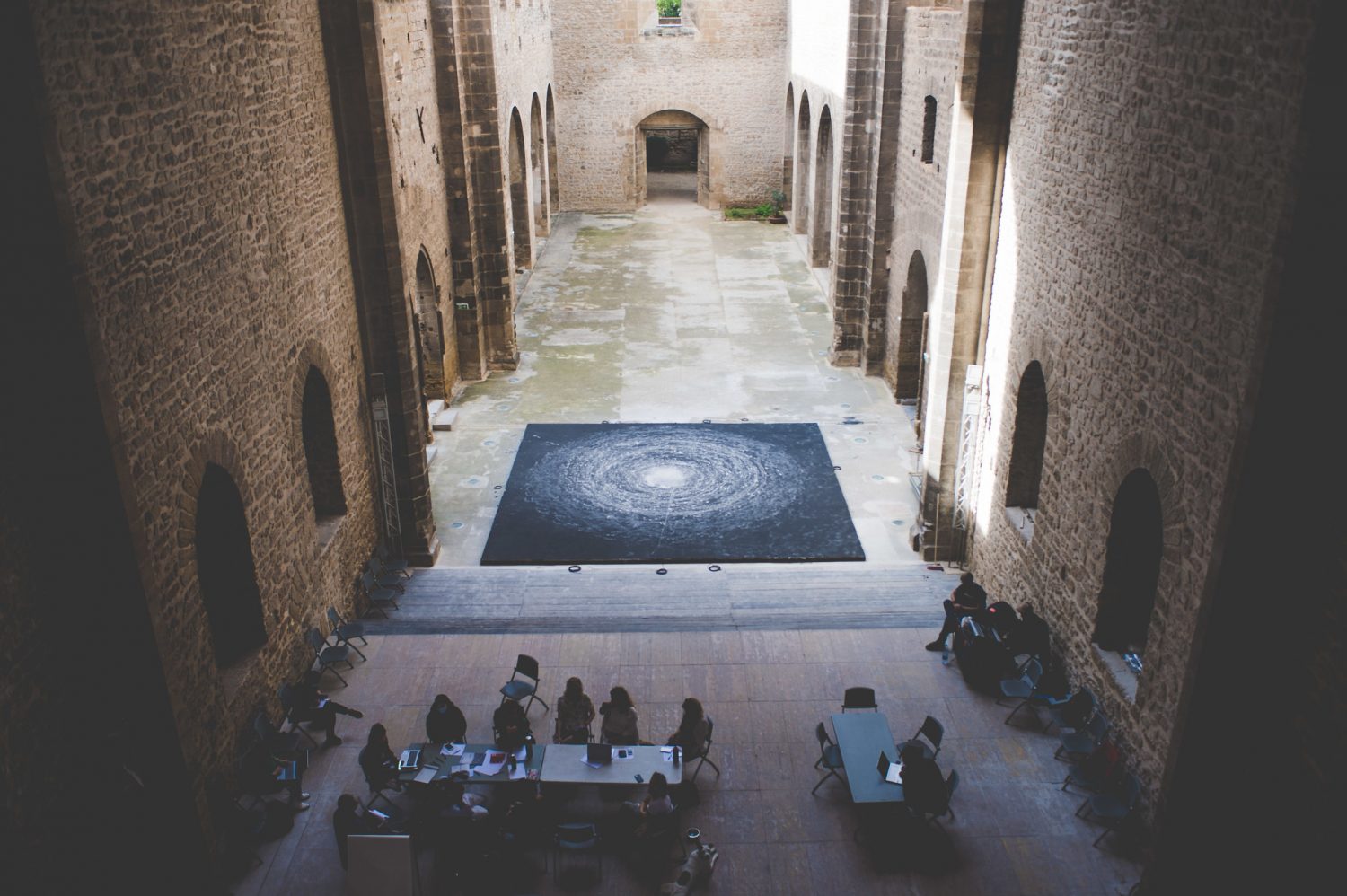Alvaro Oleart on how to build effective transnational democratic institutions
During the past two years, the European Union has ‘experimented’ with new ‘citizen participation’ mechanisms, primarily in the context of the Conference on the Future of Europe (CoFoE). The European Citizens’ Panels (ECPs) used sortition as a way to bring together a ‘representative’ group of ‘everyday citizens’ from across the EU to put forward their views on the future of Europe. However, intermediary actors (civil society, trade unions, national parties) were not sufficiently integrated in the political design of the ECPs, there was very little ‘politics’ in the public sphere (e.g.through the media); and they were insulated from wider societal debate. The insulation of European citizen panels from the European public spheres reminds us that ‘the linkages between democracy and deliberation are contingent rather than necessary’ (He and Warren 2011, 270), and thus not all forms of deliberation have a democratising potential, particularly when conceived in such a narrow way. This depoliticised approach to democracy has a demobilising effect, since political parties, trade unions and civil society actors are discouraged to participate, and may actually deepen the hollowing out (Mair 2013) of EU democracy through processes such as the CoFoE (see Oleart, 2023, for a normative critique of the underlying philosophy with which the CoFoE was organised and constructed).

Credit: Maghweb

Credit: Maghweb
What does the experience of the ECPs in the CoFoE tell us about the possibility of mobilising ‘citizen participation’ mechanisms to foster transnational democracy? First, while there are good reasons for expanding citizen participation in the EU as a way to foster transnational democracy, citizen assemblies should not be conceived as a silver bullet. As Curato and Böker (2016, 185) have argued, a systemic conception of deliberative democracy ‘underscores that minipublics do not play a constitutive but rather an auxiliary role in deliberative democratisation’. Second, a key element to assess normatively democratic innovation exercises is how they link up with the ‘deliberative system’, and to what extent conflictual dynamics are fostered in the public sphere. It is precisely this micro-macro link that is relevant for EU democracy. Discussing the role of minipublics, Olsen and Trenz (2016, 663) argued that
the claim for democratic legitimacy of a deliberative mini-public relies on processes of political mediation and public contestation where sufficient degrees of publicity can be generated through which the private (and often experimental) space of small-scale deliberation (the micro) can be meaningfully related to the public spaces of mass democracy (the macro).
From a public sphere perspective, the focus ought to be on the extent to which participatory mechanisms are embedded in a broader political field of action and interact with existing intermediary actors that play an influential role in the European public spheres, which is mostly missing in the case of the CoFoE. This process of Europeanisation of politics requires the mediation of intermediary actors, including the media, social movements, trade unions, civil society or political parties from both the transnational and national levels. In this way, the Europeanisation of politics involves an interaction between the national and the EU level, encouraging both horizontal connections (e.g. between Italian and German trade unions or political parties) as well as vertical ones (e.g. between national and EU-level trade unions). Mediation in the EU plays a double role: first, mediator organisations ought to be a space of political socialisation with EU politics, an open door for actors not previously socialised with EU politics; second, they ought to channel that energy vis-à- vis EU institutions. Intermediary actors are essential for the socialisation of citizens with institutions, and are key to structure political conflict in the public sphere.
This process of mediation is central for the democratisation of European and transnational politics, insofar the political and democratic empowerment of vulnerable social groups at the transnational level requires intermediation through collective organisation. It is difficult to imagine that a factory worker or a refugee fleeing from war as an individual citizen can have as much political weight as a banker that has the relational, cultural, economic, political and symbolic capital to participate and shape EU politics. This is why collective actors such as trade unions, political parties or civil society organisations, both at the national and EU level, ought to play a meaningful role as mediators, who should constitute the infrastructure of a democratic European public sphere.
The traditionally depoliticised understanding of democracy in the EU, largely illustrated by the CoFoE, is fundamentally opposed to an agonistic public sphere approach to democracy. As Chantal Mouffe has long argued, the
[b]elief in the possibility of a universal rational consensus has put democratic thinking on the wrong track. Instead of trying to design the institutions which, through supposedly ‘impartial’ procedures, would reconcile all conflicting interests and values, the task for democratic theorists and politicians should be to envisage the creation of a vibrant ‘agonistic’ public sphere of contestation where different hegemonic political projects can be confronted (Mouffe 2005, 3).This is not to say that citizens’ assemblies are inherently a depoliticising tool, but rather that the underlying philosophy with which the EU has deployed them in the case of the CoFoE poses fundamental normative problems. There are alternatives to this approach, as there are ways to include democratic innovations in a way that is coherent with an agonistic democracy logic. While there is a tension between making such exercises oriented towards political institutions or to the public sphere, the Irish citizen assemblies that meaningfully influenced the discourse on abortion and same sex marriage in the public sphere (and the assembly itself was influenced by the broader public debate) provide a good example of how the micro-macro link may be established, as well as the ‘Convention Citoyenne pour le Climat’, which heavily contributed to shaping public discourse on climate change in France. Similarly, the ‘Bürgerrat Demokratie’ exercise in Germany offers some interesting lessons, as it was initiated, funded and run by civil society organisations (see Dean et al. 2022), rather than by executive actors. Unlike the way in which the citizen panels post-CoFoE are planned (organised uniquely by the European Commission), a key lesson is to have parliaments or other non-executive actors organise these exercises. This will facilitate fostering political pluralism within the micro process, but, most importantly, a clearer connection between the citizen assembly and the public sphere, including a wide range of mediators in the process. Thus, ‘policy responsiveness’ should not be the main indicator of ‘success’ of democratic innovations, but rather its embedding in the democratic system and the public sphere.
More broadly, however, the key lesson is to ground ‘citizen participation’ in ongoing social movements. In this way, ‘new’ methods ought to be anchored in existing institutions and intermediary actors in a way that transnational politics are in constant interaction with national politics, feeding each other. Ultimately, the main challenges we are facing in society (climate change, wealth inequality, racism, economic precarity, sexism) are not ‘naturally’ suitable to be addressed by nation-states. While corporate actors have transnationalised, democracy has not.
An interesting example in this direction is the recent Transnational Workers’ Organizing Summit (16-20 November 2022) organised in Bremen by European Alternatives, which began with the following questions: “How can we build a powerful transnational ecology of movements based on the local struggles and issues we face? And how can we ecologize our struggles in order to build the power which allows us to have control over our lives, workplaces, and futures, and to care for ourselves, our communities, and the planet as we would like to?”. The Citizens Take Over Europe coalition is another attempt to build a grassroots transnational movement connected with civil society organisations across Europe.
In order to foster transnational democracy, facilitating spaces where ongoing movements meet and find ways in which they can connect their shared struggles ought to be the main task of ‘citizen participation’ mechanisms.
References & Further Reading
Curato, N., and M. Böker. 2016. “Linking Mini-Publics to the Deliberative System: A Research Agenda.” Policy Sciences 49 (2): 173–190. doi:10.1007/s11077-015-9238-5.
Dean, R., F. Hoffmanna, B. Geissela, S. Junga, and B. Wipflerb. 2022. “Citizen Deliberation in Germany: Lessons from the ‘Bürgerrat Demokratie’.” German Politics 1–25. doi:10.1080/09644008.2022.2088732.
European Alternatives (2022, 8 November). TRANSNATIONAL WORKERS’ ORGANIZING SUMMIT. Available online: https://euroalter.com/syndicat-transnational-workers-organizing-summit/ (accessed 2 January 2023)
He, B., and M. E. Warren. 2011. “Authoritarian Deliberation: The Deliberative Turn in Chinese Political Development.” Perspectives on Politics 9 (2): 269–289. doi:10.1017/S1537592711000892.
Mair, P. 2013. Ruling the Void: The Hollowing of Western Democracy. London: Verso books.
Mouffe, C. 2005. On the Political. London and New York: Routledge.
Oleart, A. 2023. The political construction of the ‘citizen turn’ in the EU: disintermediation and depoliticisation in the Conference on the Future of Europe. Journal of Contemporary European Studies. doi: 10.1080/14782804.2023.2177837
Olsen, E. D., and H. J. Trenz. 2016. “The Micro–Macro Link in Deliberative Polling: Science or Politics?” Critical Review of International Social and Political Philosophy 19 (6): 662–679. doi:10.1080/13698230.2014.983363.
Alvaro Oleart is a Postdoctoral Researcher at the Department of Political Science and the Institute for European Studies of the Université Libre de Bruxelles. He is the author of the book Framing TTIP in the European Public Spheres: Towards an Empowering Dissensus for EU Integration (Palgrave, 2021), and has been involved in the Citizens Take Over Europe coalition in the context of the Conference on the Future of Europe.
The article is derived in part from ‘The political construction of the ‘citizen turn’ in the EU: disintermediation and depoliticisation in the Conference on the Future of Europe’ by Alvaro Oleart, published in the Journal of Contemporary European Studies (14 February 2023, copyright Taylor and Francis), available online here.